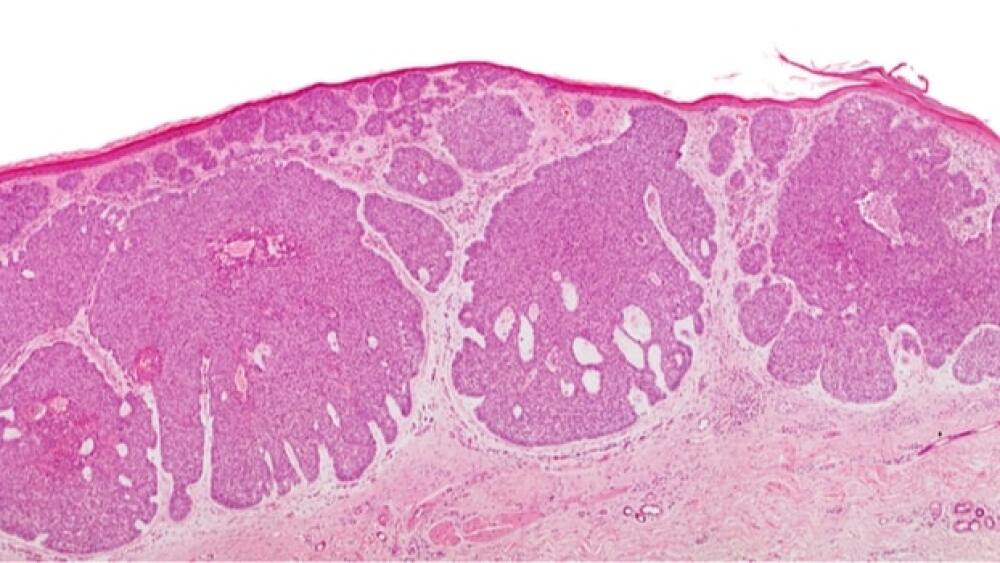Regeneron and Sanofi broke new ground in treating advanced basal cell carcinoma with their anti-PD-1 inhibitor, Libtayo.
Regeneron and Sanofi broke new ground in treating advanced basal cell carcinoma with their anti-PD-1 inhibitor, Libtayo. Data from a mid-stage study showed ongoing benefits for over one year for patients treated with the medication.
This morning, the two partners unveiled data from a pivotal Phase II study that showed patients with locally advanced basal cell carcinoma (BCC) who had progressed on or were intolerant to hedgehog inhibitor (HHI) therapy and who were treated with Libtayo (cemiplimab) had a 31% objective response rate. Additionally, the companies said 85% of the patients had responses that were ongoing at one year. The data was shared as part of a late-breaking presentation at the European Society for Medical Oncology (ESMO) Virtual Congress 2020.
Patients in the study received 250 mg of Libtayo intravenously every three weeks for up to 93 weeks or until disease progression. The primary endpoint is ORR, and key secondary endpoints include overall survival, progression free survival, duration of response, safety and tolerability.
The data from the study will form the basis of regulatory submissions, including in the U.S. and European Union, the companies said.
“Advanced basal cell carcinoma can be an unrelenting, highly disfiguring disease, and there are no approved treatment options once a patient progresses on or becomes intolerant to hedgehog inhibitors,” Alexander Stratigos, professor of Dermatology at the University of Athens Medical School at Andreas Sygros Hospital and a trial investigator said in a statement. “This is the first time a prospective trial of an investigational medicine has shown a clinical benefit in this patient population, and the Libtayo data provide hope for this difficult-to-treat cancer.”
Trial data showed the ORR was 31% with a median follow-up of 15 months. This included a complete response rate of 6% and a partial response rate of 25%. This is an increase from the ORR shared in May and includes two responses that were confirmed after the initial data analysis. Responses were seen regardless of baseline PD-L1 expression in tumor cells, the companies said.
As of data cut-off, the median duration of response and median overall survival had not yet been reached. At one-year, 85% of responses were ongoing and the probability of progression-free survival was 57%. The probability of overall survival was 92%, according to Kaplan-Meier estimates.
No new safety signals were observed with Libtayo, which targets the immune checkpoint receptor PD-1 on T-cells. Libtayo has been approved as a treatment for adults with metastatic cutaneous squamous cell carcinoma (CSCC) or locally advanced CSCC who are not candidates for curative surgery or curative radiation.
Basal cell carcinoma is a common type of non-melanoma skin cancer. While the vast majority of BCCs are caught early and easily cured with surgery and radiation, a small proportion of tumors can become advanced and penetrate deeper into surrounding tissues or spread to other parts of the body, which is more difficult to treat. In the U.S. alone, approximately 2 million new cases of BCC will be diagnosed every year, 20,000 U.S. patients will have advanced BCC and 3,000 patients are expected to die from this disease.





